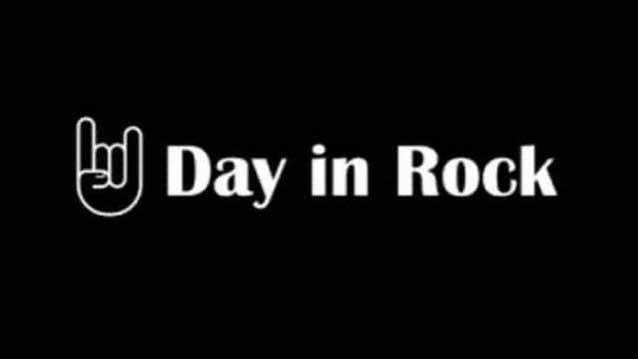Queen Explore Opening Numbers On The Greatest

(Hollywood Records) Queen have released the fifth episode of their The Greatest Live video series entitled "Opening Numbers" where Brian May and Roger Taylor explain the art of opening a live show.
Hollywood Records sent over the following details and transcript: Opening with a bang! Brian and Roger reveal the thinking behind the spectacular openings to Queen shows, and the legends who inspired them in the band's early days.
As a live band famous for making an electrifying first impression, there's a science to the Queen setlist, and in this exclusive video interview with Brian May and Roger Taylor, the two founders reveal their philosophy to starting with a bang.
From "One Vision" to "Bohemian Rhapsody," Queen have hit the stage over the past half-century armed with rock's greatest rabble-rousing anthems. As Brian explains, some songs demand a place at the top of the setlist. "Sometimes, writing a song, you're already aware it would be a good opener. You see it in that light. The production starts to take place in your head. We've had some really good openers and I think generally they've come out of the music."
Episode 5 goes on to reveal how Queen learned the importance of building anticipation from heroes like The Who and Led Zeppelin - before looking back at classic Queen openers, from Freddie Mercury revving up the crowd with "We Will Rock You" to the kabuki curtain drop and the dash down the runway for "Tie Your Mother Down" in the Paul Rodgers period.
Episode Transcript:
Roger Taylor: "As with most shows, I'm not talking about plays or anything like that, I think for the audience, they want to be blown away at first. So if you can blow them away a bit at first, we used to say blind them, deafen them, and then calm down a bit after 20 minutes."
Roger Taylor: "But it's really you try and make an impact with the first song visual and obviously sort of an aural attack really. And then you try and space the songs intelligently, but you really want to go bang, bang, bang, bang at the beginning of a show."
Brian May: "Yeah, openings and closings of shows are incredibly important. What's in the middle is important too. But you know, the way you come on and the way you leave are the most significantly memorable moments. So a lot of thought goes into the opening, and it's been a specialty of mine for a long time. In fact, sometimes writing a song, you're already aware that it would be a good opener. You see it in that light. The production starts to take place in your head."
Brian May: "We've had some really good openers and I think generally they've come out of the music. You see, I think our show is also different from many shows in that everything comes from the music. It's not like just let's put on a pretty light show and play some music. Everything comes from the music, everything is making the music more expressive, making it connect better."
"So knowing that process and that sort of solid seat of it, it's actually quite easy to fashion those moments. And it's fun. It's so fun to plan it out, plan the sound, plan where we're going to be, planning the lights and everything and then see the effect on the audience and go, 'Yes, that works'."
Roger Taylor: "We've had some good openings. I used to like the kabuki. The big curtain just disappears in front of your eyes and suddenly reveals all. That was always a good, good gag."
Brian May: "I remember going to see a show by The Who or Zeppelin, and you're sitting there in the audience and they're late and it's all hot and steamy and sweaty, and you think... 'What are they going to do when they come on?' and it's that amazing moment when they first hit the stage. So we're very aware of that and we try to give... we're never late. But we try to give that feeling, justify that feeling of anticipation, give them something that they've never quite seen before,
Roger Taylor: "It's nice to sort of create an atmosphere, I think, and we use very sort of ambient things. Sounds for that through the P.A., not loud, just to get a nice buzz, hopefully, and an expectant buzz. I think many acts do that. Support act? Yes. We've had them in the past. Many and it's always been fine. But I think the show these days is big. It's a massive production and really, and it's long, and I think it's just a bit sort of superfluous really. We don't feel we need a support act and so we don't have one.
Brian May: "Basically, we have a lot to offer on a given night and we like to use the whole evening. So we like to do the whole show ourselves. It's like we kind of do the warm up ourselves. In some ways it's a shame because it's nice to take a support group out because it gives them a leg up and it gives them a good chance to be seen."
Brian May: "But at the same time, we've talked to our audience a lot of the time, and I think most of them prefer what we do. They like to have the whole evening, just us, that we've actually made the effort to put our show together, which lasts two and a half hours or more, which encompasses everything that they might want to see us do. And you can't do that in any less time than that, really."
Watch the episode below:
Queen's Brian May Teams With Gibson For Signature SJ-200 12-String
Queen's 'Crazy Little Thing Called Love' Surpasses 1 Billion Streams
Queen Announce Special Record Store Day Release
Brandi and the Alexanders Stream 'Black Cherry'
